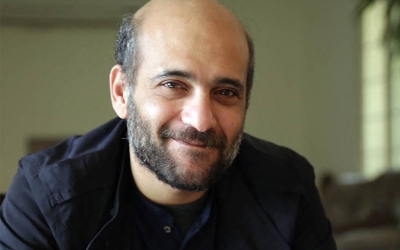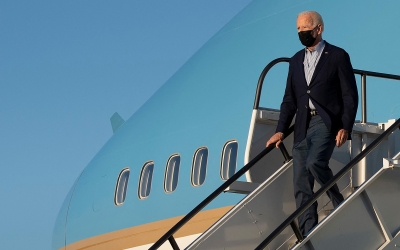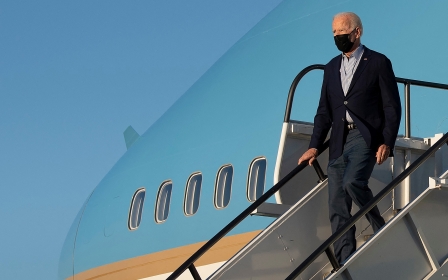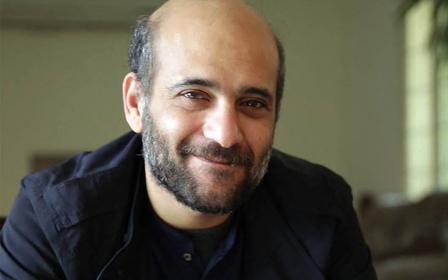Egypt: Family of Ramy Shaath call for his release to visit ailing father
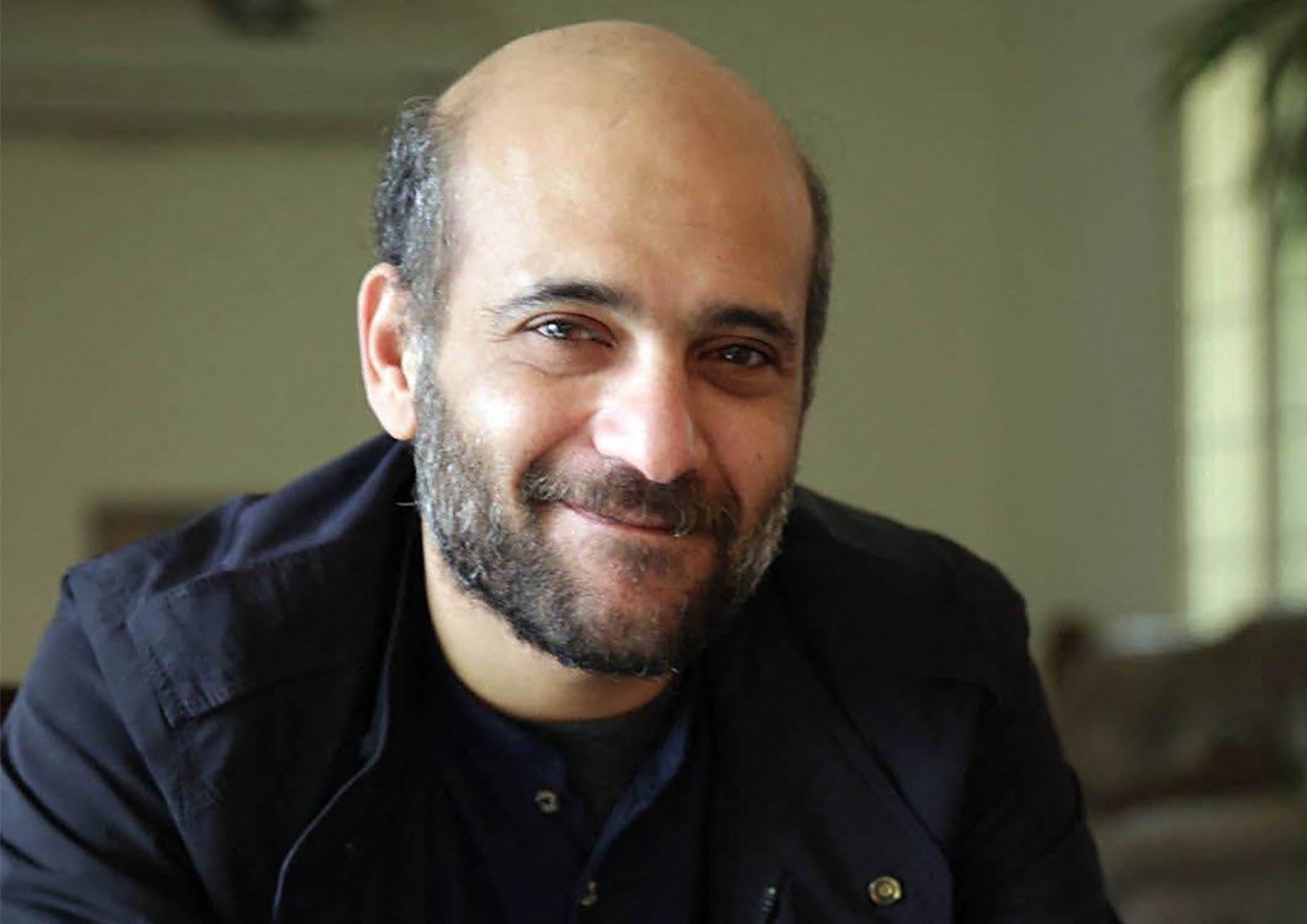
The campaign to free Ramy Shaath, a co-founder of Egypt's pro-Palestinian Boycott, Divestment and Sanctions (BDS) movement, renewed its call on Wednesday for his release on humanitarian grounds so that he could be reunited with his ailing father.
The campaign said that in the last week of September, Nabil Shaath, a former Palestinian foreign minister, had experienced a severe deterioration in his health.
New MEE newsletter: Jerusalem Dispatch
Sign up to get the latest insights and analysis on Israel-Palestine, alongside Turkey Unpacked and other MEE newsletters
It said that at the age of 83 he has been suffering from serious medical issues and been in and out of hospital.
Ramy Shaath's family said it had already lost one son, rights activist Ali Shaath, to a heart attack, and that Shaath's father was "now deprived of Ramy’s presence and support in such a critical moment".
Shaath was placed on a terrorism list by an Egyptian court in April 2020, which carries an asset freeze and travel ban.
He surpassed his maximum two-year pre-trial detention period in July 2021 and remains detained in Egypt’s Tora prison.
'Precious moments'
Shaath's family said he had reported his own personal health issues, as well as alarming conditions in the prison, which is south of Cairo.
The campaign said that in the past week, a prisoner in an adjoining cell to Shaath was killed during an outbreak of violence, and prison guards had conducted humiliating raids and become increasingly abusive in response.
“After losing my mother this summer, I suffered through my grief without my husband by my side,” said Shaath’s wife, Celine Lebrun-Shaath.
“We can’t lose any more precious moments with our loved ones. Ramy should have been released long ago, and our family must be reunited immediately.”
Since the military coup that ousted his democratically-elected predecessor Mohamed Morsi in 2013, Egyptian President Abdel Fattah el-Sisi has overseen what rights groups have described as the worst crackdown on human rights in the country's modern history.
Thousands of supporters of Morsi, who hailed from the Muslim Brotherhood, as well as secular activists, have been detained since the coup.
Many have died in custody due to poor prison conditions and medical negligence.
'Human rights strategy'
Last month, Sisi announced his government’s “human rights strategy”, which rights groups have criticised as insufficient amid the continued detention of tens of thousands of political prisoners.
Sisi has said he will free some prisoners on Wednesday, to mark the 6 October anniversary of the beginning of the 1973 Arab-Israeli War.
The United States said in September that new conditions over Egypt's human rights record would affect a share of the $1.3bn in military aid that it sends to the country each year.
After what was described in the Washington Post as "lengthy deliberations," US State Department officials and congressional aides said the government would be providing $170m to Egypt for counterterrorism, border security, and nonproliferation.
They said an additional $130m would be provided, on the condition that the Egyptian government ends its harassment and repression of human rights organisations.
However, the move provoked anger from rights groups, who have said that the conditions attached to the aid did not go far enough in addressing the Egyptian government's abuses.
Last week, US national security adviser Jake Sullivan said he had raised the issue of human rights during talks with Sisi in Cairo.
The campaign to free Ramy Shaath said that after more than two years of intense advocacy and campaigning for Shaath’s release, it believed this was a critical moment to secure his release and the chance for him to spend time with his ailing father.
Middle East Eye delivers independent and unrivalled coverage and analysis of the Middle East, North Africa and beyond. To learn more about republishing this content and the associated fees, please fill out this form. More about MEE can be found here.


